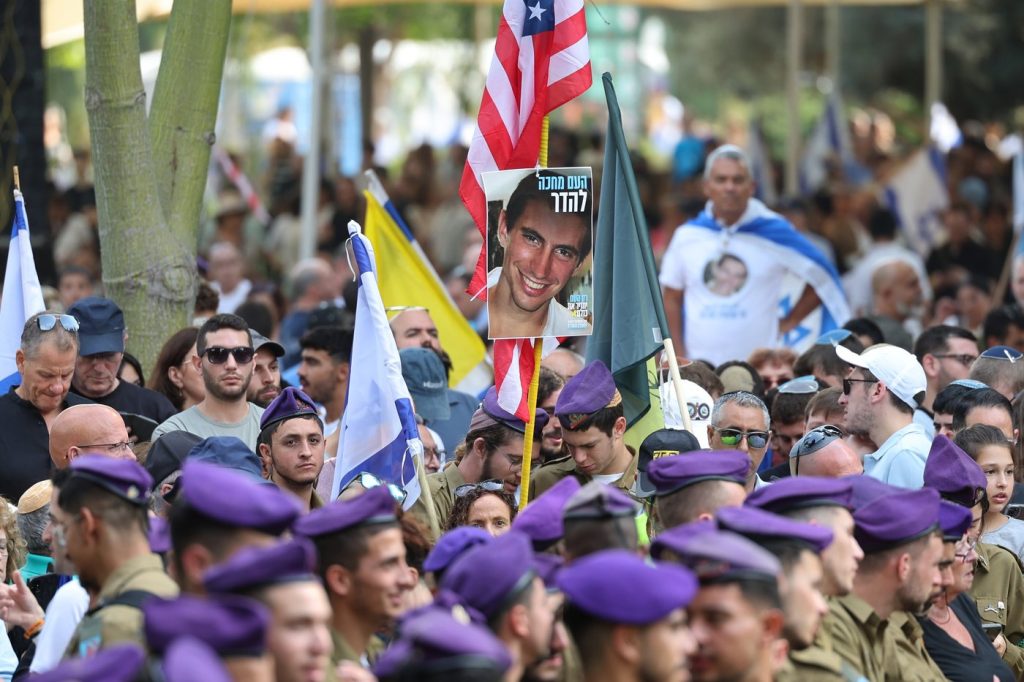KFAR SABA, Israel (AP) — On Tuesday, tens of thousands gathered for the funeral of Israeli soldier Lt. Hadar Goldin, whose remains had been held hostage in Gaza for 11 years. The somber event overflowed from the cemetery, blocking surrounding streets as mourners stood with Israeli flags, marking a significant moment of closure for Goldin's family.
The return of Goldin's remains by Hamas occurred on Sunday, following years of a public campaign by his family to bring him home. This comes as the bodies of four hostages taken during the Hamas-led attack on October 7, 2023, remain in Gaza amid ongoing hostilities.
Hadar Goldin was killed just two hours after a ceasefire was established during the 2014 war between Israel and Hamas. For almost a decade, posters featuring Goldin and Oron Shaul, another soldier abducted in 2014, adorned numerous intersections as their families persistently campaigned for the return of their bodies. Israel's military had previously determined that Goldin was deceased based on evidence, including a blood-soaked shirt and prayer fringes found in the tunnel where his body was taken.
The Goldin family expressed their many disappointments over the 11-year ordeal. Following the identification of their son, they noted that it was Israel's military, and not any political figure, that ultimately brought Hadar home. This statement appeared to be a veiled criticism of Prime Minister Benjamin Netanyahu, who acknowledged the prolonged suffering experienced by the Goldin family.
In the wake of Goldin's return, Leah Goldin shared her belief that recovering her son’s remains is part of the social contract between Israel and its citizens, who are legally obligated to serve in the military. She expressed feelings of abandonment, stating, “Hadar is a soldier who went into combat, and they abandoned him, and they destroyed his humanitarian rights and ours as well.” As an artist who had just become engaged, his loss has deeply affected his family.
The effort to rescue Goldin following his abduction was marked by significant violence. Israel's initial military operations resulted in the deaths of dozens of Palestinians, who described the experience as overwhelming and terrifying. During a forceful campaign invoking the “Hannibal directive”—a protocol allowing disproportionate use of force to prevent the capture of Israeli soldiers—Israeli forces bombarded a neighborhood in Rafah with artillery, killing over 110 Palestinians.
Human rights organizations condemned these actions, labeling them as potential war crimes due to the indiscriminate nature of the force used, which failed to distinguish between civilians and combatants. Following widespread criticism, Israel officially canceled the Hannibal directive in 2016, later introducing a revised version in 2017.
The 2014 conflict resulted in the deaths of over 2,200 Palestinians, including many civilians, while 73 Israelis lost their lives throughout 50 days of fighting, highlighting the devastating impact of the prolonged conflict on both sides.
This tragic saga of Hadar Goldin not only exemplifies the enduring human cost of the Israel-Palestine conflict but also serves as a reminder of the complex and often painful realities faced by families on both sides of the divide.











